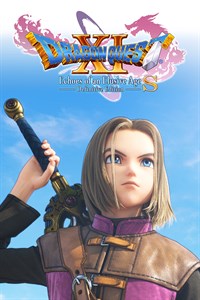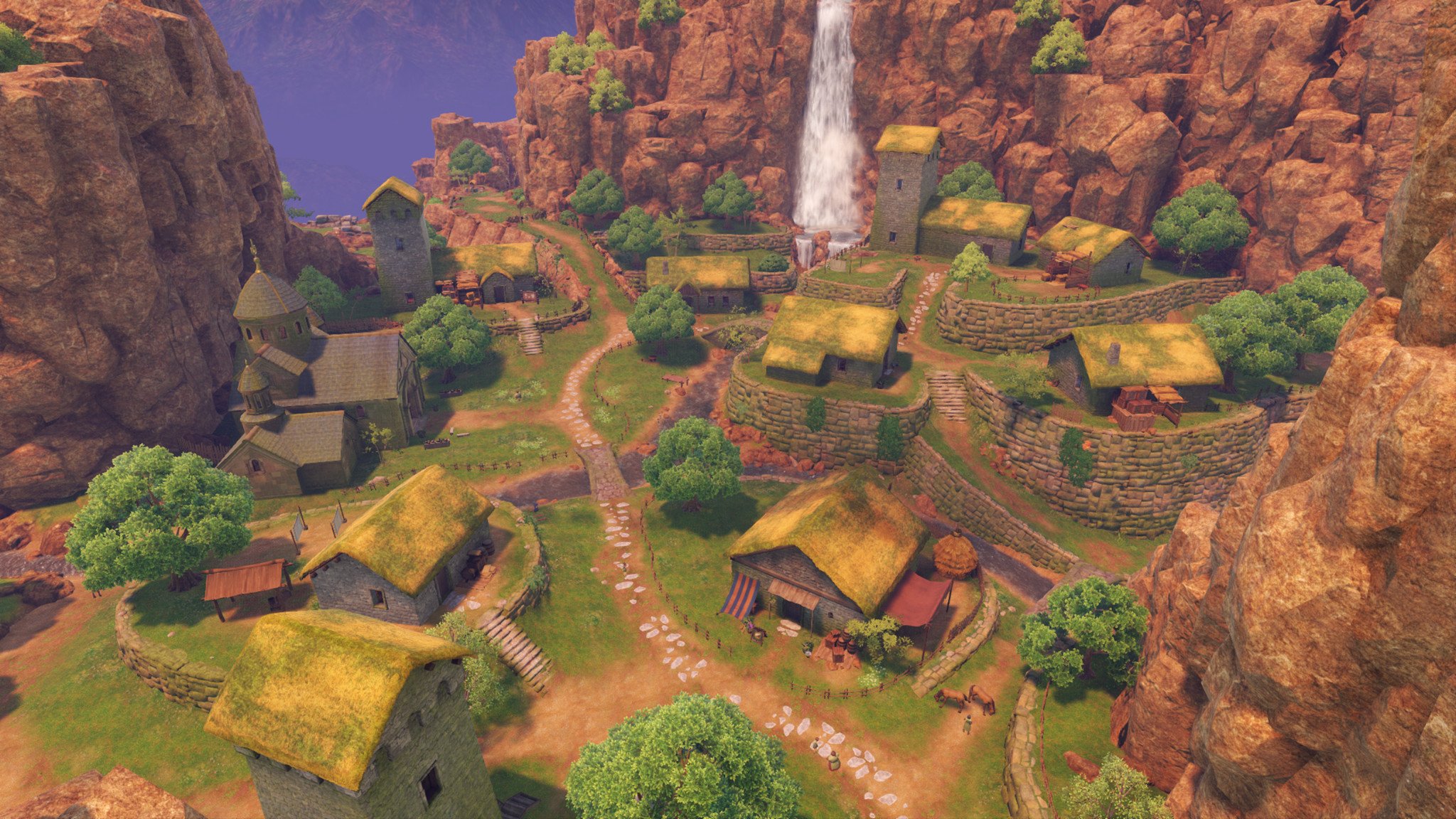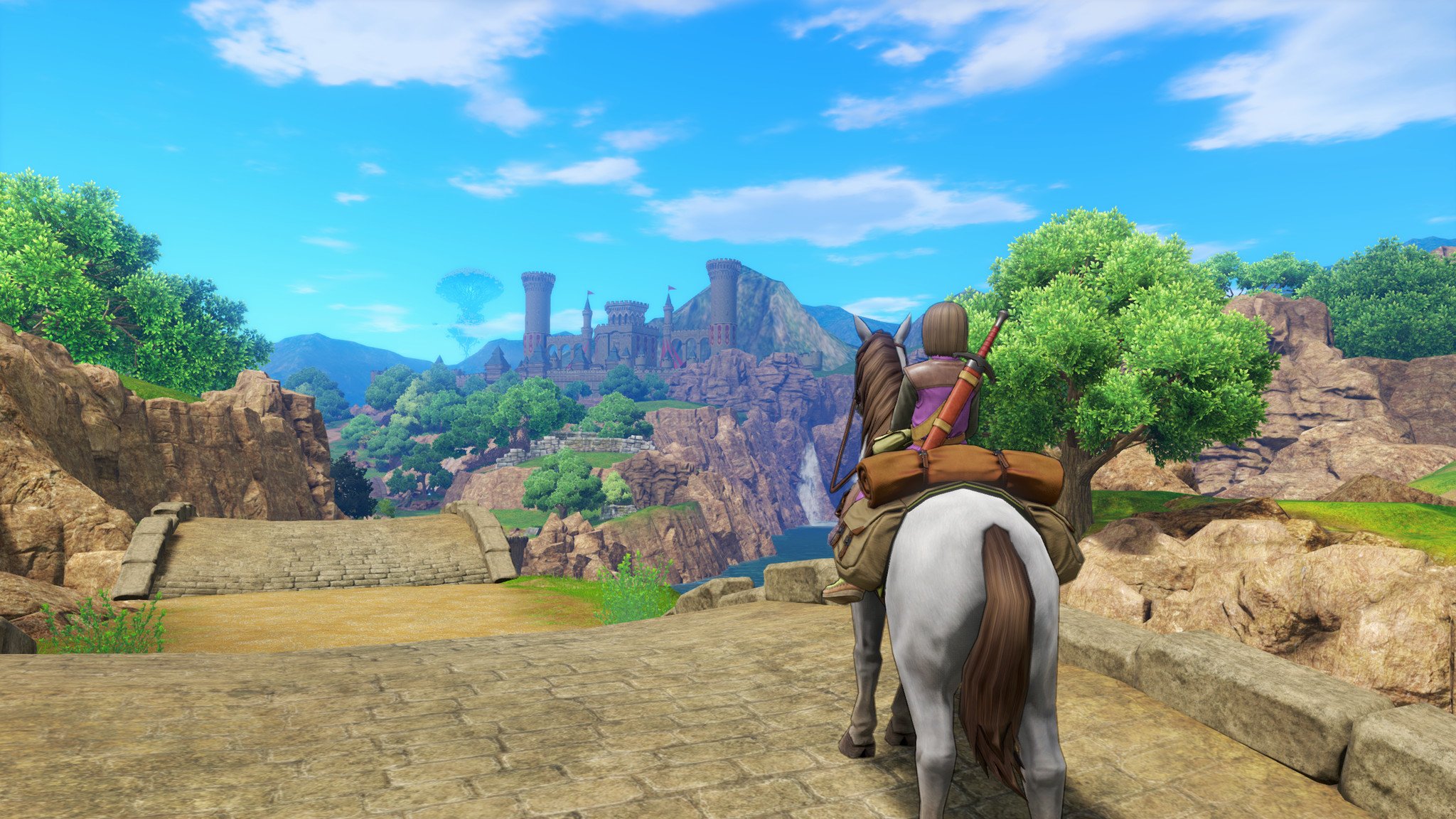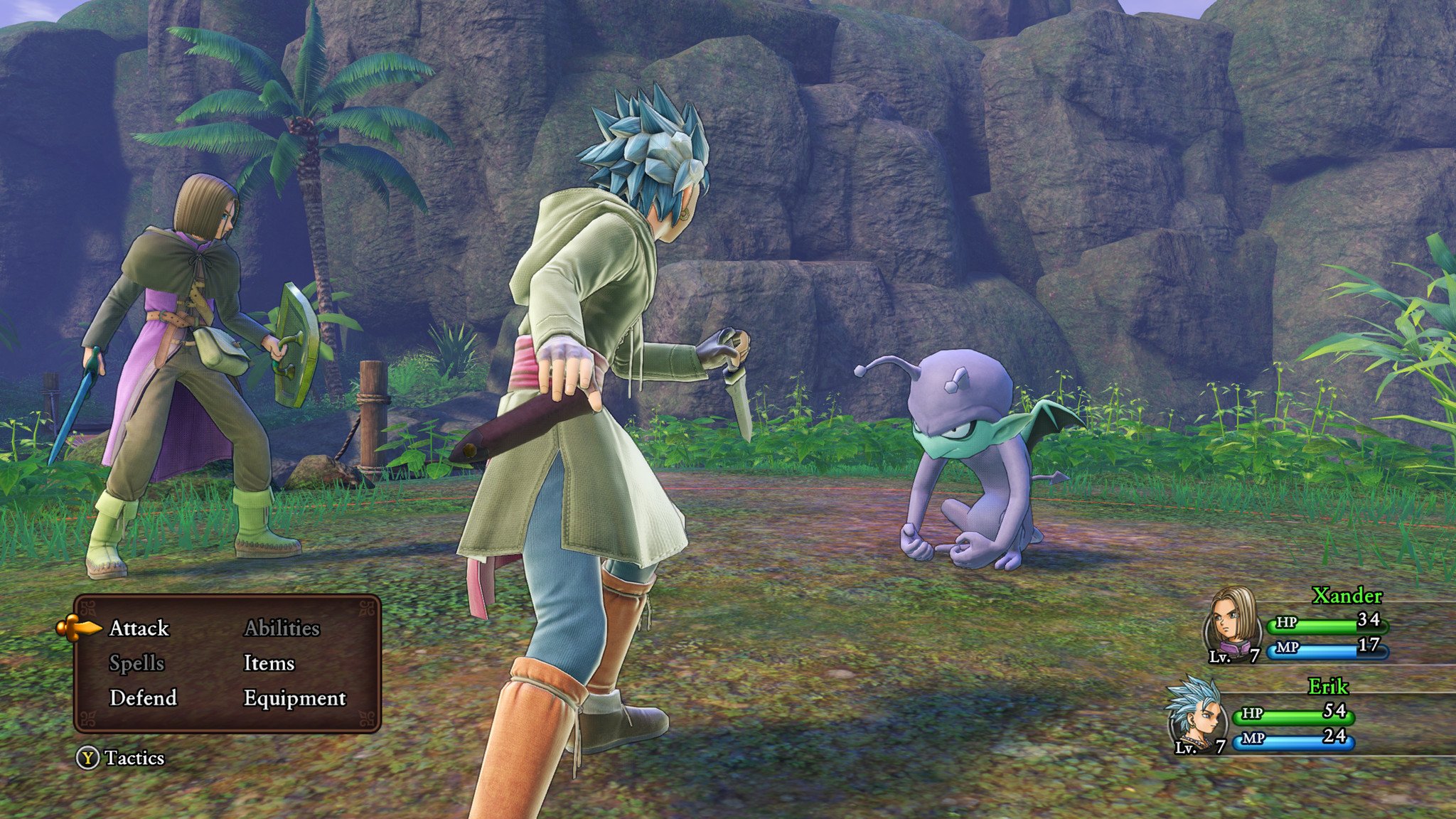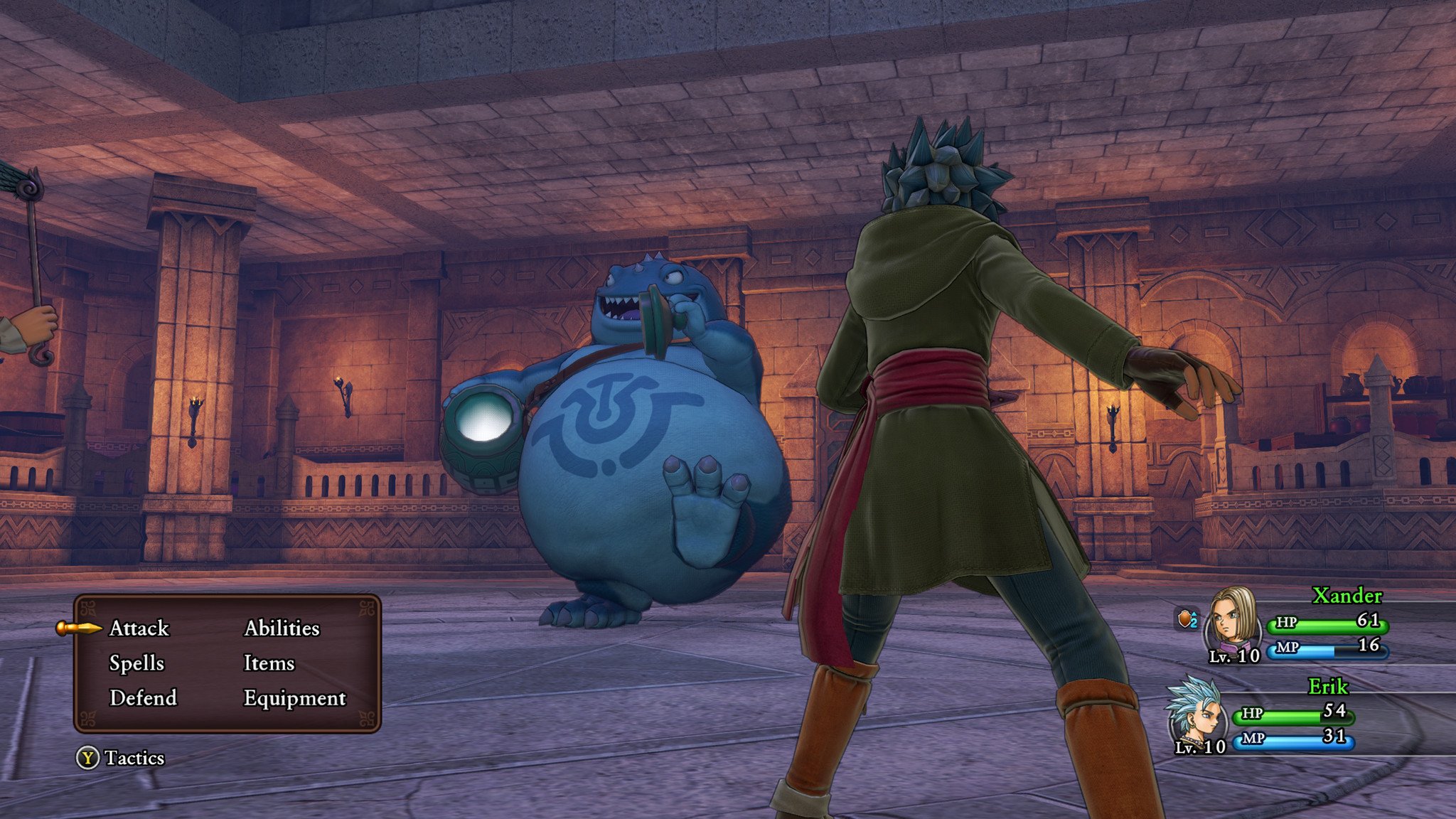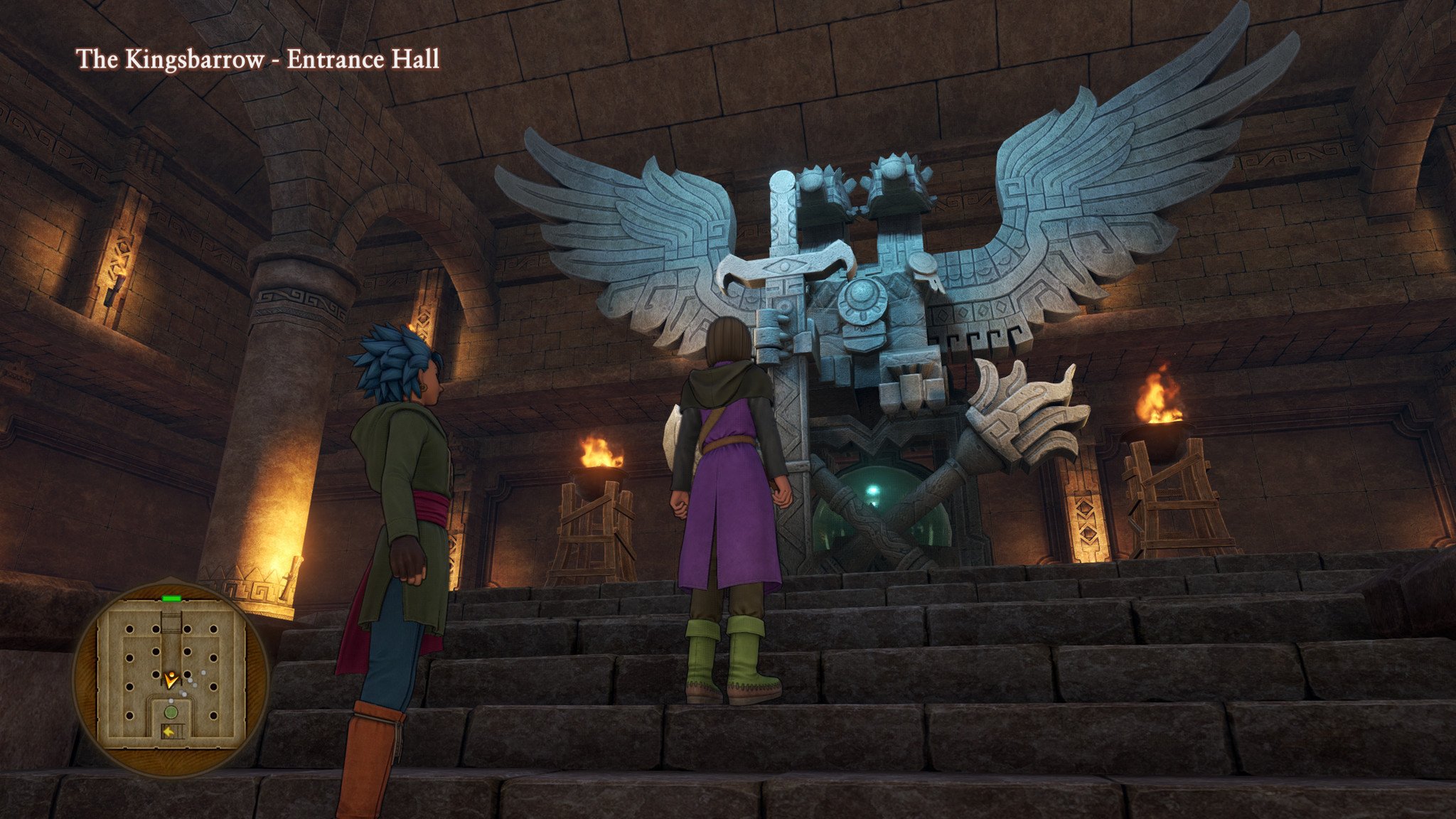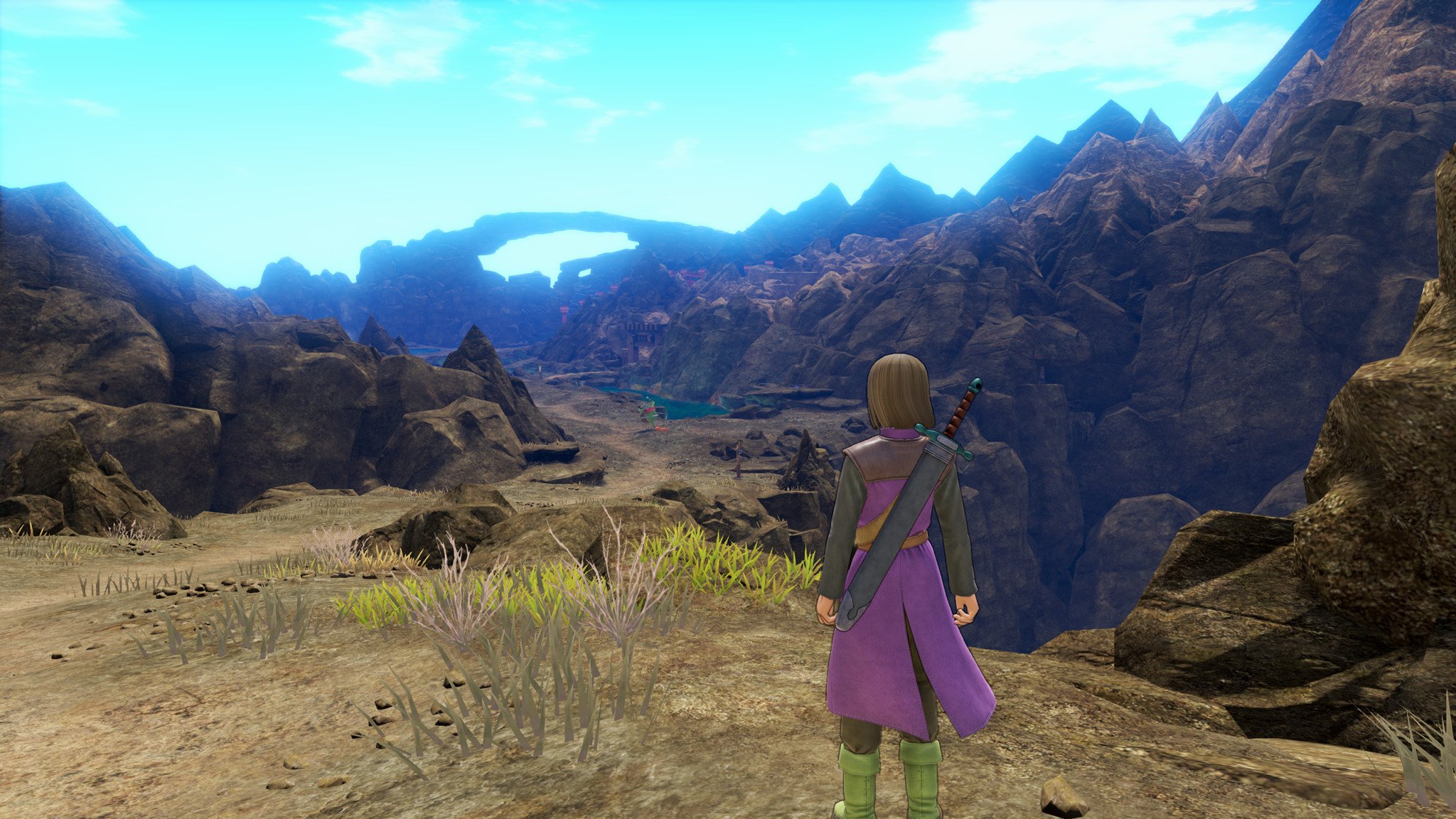Dragon Quest XI S: Echoes of an Elusive Age preview — Finally, Xbox players can play this great RPG series
Dragon Quest comes to Xbox for the first time. Here's what to expect for newcomers.
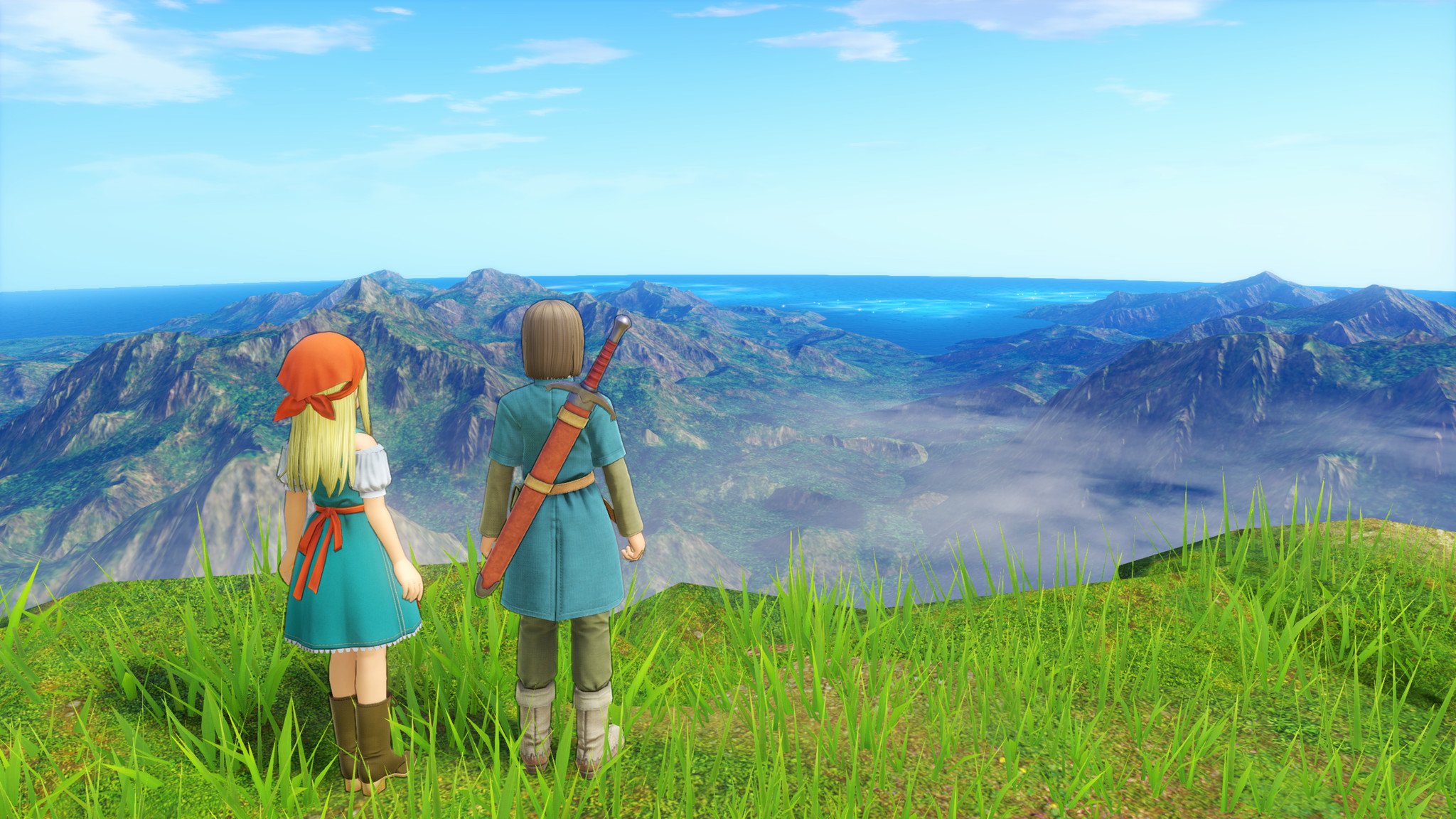
All the latest news, reviews, and guides for Windows and Xbox diehards.
You are now subscribed
Your newsletter sign-up was successful
This winter is looking to bring a good number of high-profile RPGs to Xbox fans. There's the over-the-top, turn-based crime drama Yakuza: Like a Dragon; the highly anticipated dystopian adventure Cyberpunk 2077; and the subject of today's article, Dragon Quest XI S: Echoes of an Elusive Age – Definitive Edition, which is the latest flagship entry in the Dragon Quest franchise. This is a series considered to be the grandfather of JRPGs, dating all the day back to 1986 on the Nintendo Entertainment System.
This particular entry was originally released as Dragon Quest XI: Echoes of an Elusive Age back on the PS4 and Nintendo 3DS back in 2017, but only in Japan. Later, it was released worldwide on PS4 and PC in 2018, with a Definitive Edition hitting the Switch in Sept. 2019. Finally, the PS4 and Xbox One will see this definitive version on Dec. 4, 2020. Not to mention it will be included in Xbox Game Pass.
The Xbox and PS4 ports will receive all the additions the Switch version had, including new storylines, being able to choose the orchestral or MIDI versions of the soundtrack, the choice between Japanese or English audio, photo mode, post-game content, and the ability to switch between 3D graphics and 16-bit sprites. You can also now play it in 4K resolution at 60 FPS.
For many Xbox fans, this will most likely be their first Dragon Quest experience. I've played most of the previous Dragon Quest games through various remakes and re-releases, but never got the chance to play Dragon Quest XI. So, this game will be new to me as well. Now's a good time to find out what I missed out on thanks to a demo Square Enix released last week on the Xbox store.
Could Dragon Quest XI become one of the best games on Xbox? Let's dive right into this demo and find out what's so Elusive about this dragon's quest.
The legendary JRPG series comes to Xbox
Dragon Quest, the franchise that defined JRPGs on home consoles for generations, is finally making it's way to Xbox. Embark on an epic adventure to explore the world, befriend charming characters, and save the land from the Lord of Shadows.
Dragon Quest XI on Xbox Off to adventure
Our story begins as our infant protagonist (which you can name) is being taken away as monsters invade his hometown. His saviors manage to get him to safety, but at a high price. The hero is later found and adopted by the villagers of a town called Cobblestone.
Many years later, after undergoing a coming of age ceremony, the hero learns about his adoption from his foster mother, Amber, and that he is the reincarnation of the Luminary, a legendary warrior who saved the world (known as Erdrea) from an evil monster known as The Lord of Shadows. Proof of our protagonist's connection to the Luminary is the birthmark on his hand and the necklace he had when the Cobblestone villagers found him.
All the latest news, reviews, and guides for Windows and Xbox diehards.
As you can imagine, our protagonist is confused and dumbfounded at this revelation. Amber tells him that he must go to the Kingdom of Heliodor and meet its king for more answers. So, our protagonist says his goodbyes and sets off to discover his true origins. However, the hero may need to keep his Luminary status a secret. There are folks out there who don't take kindly to legends.
If there is one thing that defines Dragon Quest, it's tradition. Dragon Quest games are light-hearted, swords and sorcery-type fantasy stories complete with a silent protagonist off to the save the world. On the way they meet charming characters, help townsfolk via sidequests, and battle evildoers and monsters with puns for names in turn-based combat.
If there is one thing that defines Dragon Quest, it's tradition.
For nearly 35 years, the Dragon Quest has stuck to this format. From what I have played of the demo, that hasn't changed. The differences between each entry come down to additional features that make each game unique. Being able to recruit monsters into your party in Dragon Quest 5, the job class systems in Dragon Quest 7 and 9, and playing through each character's origin story before they all converge in Dragon Quest 4 are just a few examples.
The unique feature for Dragon Quest IX seems to be platforming and action set pieces. This is the first game where you can jump in the Overworld to do some platforming, mostly to get hard-to-reach treasure. It's nothing ground-breaking, although it does give exploring towns and dungeons vertical depth not seen much in previous games. Running on rooftops in towns to get better views for screenshots using the game's Photo Mode is pretty neat.
The action set-pieces I've experienced so far are stealth segments and one that involved running away from a giant dragon. It's nice to see action in Dragon Quest that isn't just from the combat. Granted, none of these sections were too diffcult, but I imagine there will probably be more difficult ones in the full game. If past games are any indication, the difficulty will spike immensely later on.
Dragon Quest XI on Xbox Combat
Dragon Quest defined turn-based combat for JRPGs on home consoles and is about as traditional as you can get. You take turns to whack monsters, get experience to level up, and gain money to buy gear at the shops to kill bigger monsters. None of this is a bad thing — why change what's worked for over three decades?
However, there are some new battle features I haven't seen in previous games. One is being able to toggle between Free-Form and Classic camera while in a fight. Free-form lets you move the camera and position characters about on the battlefield, whereas Classic makes everyone stand in a line, and the camera makes constant jump cuts whenever an action is taken. These camera angles don't affect combat, but they can come in handy if you want to take a screenshot by pressing the right trigger to hide the UI.
What does affect combat is the new Pep mechanic. When you get hit or take an action, there's a chance your character will glow and become "Pepped." This powered-up state buffs up your character's stats, and if multiple characters are Pepped, they can perform team attacks.
I'm not sure how I feel about this mechanic. It's instrumental in battle when it triggers, but I'm not too fond of the seeming randomness of how it triggers. In past games, there was a similar mechanic called Tension that allowed you to manually power yourself, but it required multiple turns to achieve maximum potency. It was more satisfying to have full control. Although there is a good trade-off here. Pep lasts for multiple turns, whereas Tension only lasted for one action.
Be warned, Dragon Quest games are slow burns and require a fair amount of level grinding. It will be a few hours until you run into the first boss fight, and when you do, you had better be prepared. Bosses in Dragon Quest can be difficult, so you need to make sure your party is fully geared up before taking them on. Unfortunately, gear is expensive in Dragon Quest games, and enemies give little money, so that you will be grinding a fair bit. Granted, the need to grind doesn't seem to be as heavy in Dragon Quest XI compared to past entries, but it's still here. I like grinding in Dragon Quest games, but it's something to consider for yourself.
Dragon Quest XI on Xbox Presentation
One aspect that I cannot get over is how good the character models are. This game has the best 3D rendition of Akira Toriyama's (creator of Dragon Ball and long-time character designer for Dragon Quest) art style I've ever seen. Even three years after its original PS4 release, it still holds up and is made even better running at 60 FPS. The environments also look pretty good, with great attention to detail with vibrant lighting and color palettes. This is on the Xbox One X, too. There's every chance it could look even better on Xbox Series X down the line.
Unfortunately, I couldn't test out the 16-bit mode or MIDI version of the soundtrack because they were locked out in the demo. We'll have to wait for the full release for that.
Bottom line: Should you check out Dragon Quest XI on Xbox?
There's something alluring I find about Dragon Quest games. Other JRPGs like Final Fantasy, Shin Megami Tensei, and the Tales Of series have constantly changed over the years to fit with the times whereas, Dragon Quest has firmly stuck to its NES roots, not due to lack of innovation but through conviction. It does everything within its power to maintain its identity and executes that goal with 110% effort, puns and all. It's definitely worked in Japan. There was even a national holiday when Dragon Quest 3 was first released back in the '80s, so kids in Japan could go out and buy it.
For the rest of the world, though, Dragon Quest has been overshadowed by other RPGs. Thankfully, in recent times it has been getting the recognition I feel it deserves. With Dragon Quest XI's original PS4 release, the game discovered newfound success in the West. Now, hopefully, it can find even more appreciation on the Xbox.
I'll definitely be checking this game out when it fully releases come December, and I encourage anyone looking for a light-hearted JRPG adventure to give it a shot.
Dragon Quest XI S: Echoes of an Elusive Age - Definitive Edition is releasing on Xbox One consoles on Dec. 4, 2020. It'll also be hitting Xbox Game Pass Console and PC the same day.
Legendary JRPG series comes to Xbox
Dragon Quest, the franchise that defined JRPGs on home consoles for generations, is finally making it's way to Xbox. Embark on an epic adventure to explore the world, befriend charming characters, and save the land from the Lord of Shadows.
Xbox Series X/S
Main
- Xbox Series X: Everything we know
- Best games coming to Xbox Series X/S
- List of Xbox Series X specs
- What is the Xbox Series X release date?
- How much does Xbox Series X cost?
- Why you can't preorder Xbox Series X yet
- Best Xbox Series X Headsets

Alexander Cope is a gaming veteran of 30-plus years, primarily covering PC and Xbox games here on Windows Central. Gaming since the 8-bit era, Alexander's expertise revolves around gaming guides and news, with a particular focus on Japanese titles from the likes of Elden Ring to Final Fantasy. Alexander is always on deck to help our readers conquer the industry's most difficult games — when he can pry himself away from Monster Hunter that is!

